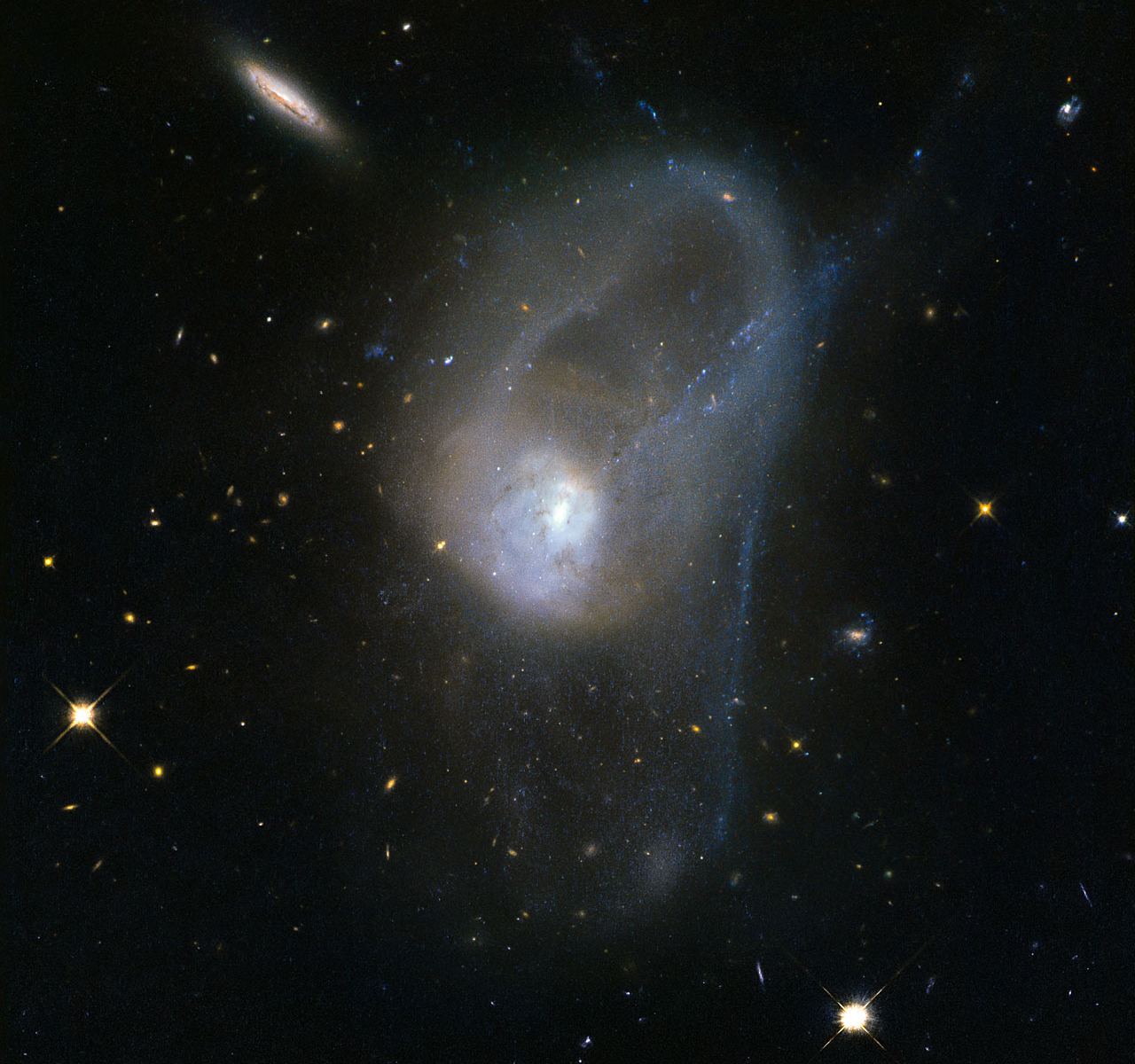Galaxy mergers are beautiful sights, but ultimately deadly. In the midst of the collision, the combined galaxy will shine brighter than it ever has before. But that glory comes with a price: all those new stars use up all the available fuel, and star formation grinds to a halt.
Our own galaxy, the Milky Way, will merge with our nearest neighbor, Andromeda, in about 4 billion years. And our galaxy is not alone: galaxies merge with each other across the universe, as evidenced by the plethora of galaxies caught in the act (so to speak) by our observations.
Teasing out the details of the merger process and its effects on the galaxies is difficult. We can’t watch a single galaxy merger event play out in real time, because the whole thing takes hundreds of millions of years to complete. But we can observe different stages of the process from the multitude of snapshots that we can see.
A recent study of a merged galaxy, known as ID2299, adds to the intricate portrait. As far as we can tell, when galaxies first merge it’s a glorious sight: the star formation ramps up from all the collisions of gas clouds and extreme gravitational interactions. Briefly, the merged galaxies can shine up to ten times brighter than they did individually.
But to make stars you need fuel in the form of reserves of cold gas. And unfortunately, the merger event heats up the galaxy in several ways. For one, the central supermassive black hole feeds on fresh rounds of material brought down to the core. That feeding event triggers the release of intense amounts of radiation which floods the surrounding galaxy. For another, all those new stars include tons of large, hot, bright stars, which also flood the galaxy with high-energy radiation, especially when they go supernova.
Taken together, the intense heat and the lack of raw materials suppress the formation of new stars, and the merged galaxy eventually settles into galactic retirement, fading from the cosmic stage.
At least it was fun while it lasted.

